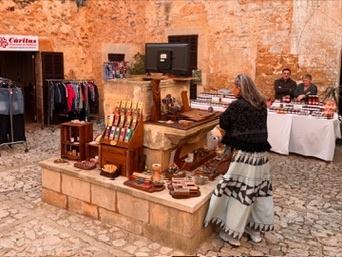How sustainable is the harvesting and use of giant reed in Mallorcan crafts?
Similar Topics
giant reed sustainability
mallorcan crafts
arundo donax harvesting
rapid plant regeneration
traditional basket weaving
biodegradable materials
riparian zone plants
sustainable resource management
The harvesting and use of giant reed (Arundo donax) in Mallorcan crafts is generally considered sustainable due to the plant's rapid growth and resilience. Giant reed is a perennial cane that thrives in the Mediterranean climate of Mallorca and regenerates quickly after each cut, often within a single growing season. This regenerative capability allows artisans to harvest the material regularly without depleting local natural populations. Furthermore, giant reed typically grows in abundance along riverbanks, wetlands, and other riparian zones, which reduces the need for additional cultivation or environmental disruption in forested or agricultural areas.
The traditional use of giant reed in crafts such as basket weaving, chair making, and fencing combines cultural heritage with local resources, minimizing reliance on imported or synthetic materials. Artisans usually harvest the reed by hand during the late autumn or winter months, when the plant's properties are optimal for crafting. This selective and seasonal harvesting ensures the long-term health of the reed beds and helps maintain local biodiversity. Moreover, because the material is biodegradable and natural, products made from giant reed reduce plastic waste and have a lower environmental footprint compared to alternative materials.
However, some ecological concerns exist, particularly related to the invasive nature of giant reed in regions outside its native range. In Mallorca, where the species is well established, it is important that harvesting practices remain balanced to prevent overgrowth that can impact native plants or water systems. Continued sustainable management involves monitoring the reed beds and supporting traditional knowledge among local craftsmen to avoid overharvesting or habitat degradation. Overall, the craft-based use of giant reed in Mallorca aligns well with principles of sustainability, fostering an environmentally friendly approach to cultural preservation and local economic activity.
The traditional use of giant reed in crafts such as basket weaving, chair making, and fencing combines cultural heritage with local resources, minimizing reliance on imported or synthetic materials. Artisans usually harvest the reed by hand during the late autumn or winter months, when the plant's properties are optimal for crafting. This selective and seasonal harvesting ensures the long-term health of the reed beds and helps maintain local biodiversity. Moreover, because the material is biodegradable and natural, products made from giant reed reduce plastic waste and have a lower environmental footprint compared to alternative materials.
However, some ecological concerns exist, particularly related to the invasive nature of giant reed in regions outside its native range. In Mallorca, where the species is well established, it is important that harvesting practices remain balanced to prevent overgrowth that can impact native plants or water systems. Continued sustainable management involves monitoring the reed beds and supporting traditional knowledge among local craftsmen to avoid overharvesting or habitat degradation. Overall, the craft-based use of giant reed in Mallorca aligns well with principles of sustainability, fostering an environmentally friendly approach to cultural preservation and local economic activity.
🧩 Related Questions
Related Question
How do droughts influence the agricultural productivity and crop choices in Mallorca?
Related Question
How do the educational initiatives in Mallorca contribute to the preservation of its culture?
Related Question
What are the main organic farming techniques used by citrus growers in Mallorca?
